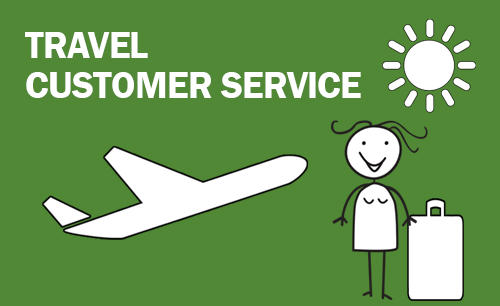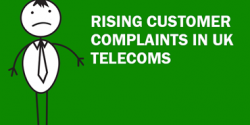Travel customer service – just the ticket?

The travel industry has been transformed by the rise of digital channels. Consumers now turn to the web first when researching and booking flights and holidays, using the reach of the internet to create tailor made itineraries, rather than visiting a high street travel agent. Sites such asTripAdvisor, along with social media, have also introduced a powerful way of sharing opinions about the service travelers have received with the wider world. And consumers can give their opinions online in real-time, from the poolside of their villa or airport departure gate using their smartphones.
Marketing experiences is a tricky business and leads to a wide range of questions demanding contextual knowledge, such as specific information on a resort/hotel/airport or amenities close by. For many customers the annual holiday is the biggest single expenditure of the year and rarely will they make a purchase unless they are completely satisfied with the information they have received.
This combination of increased consumer confidence, more choice, greater transparency and the ability to share opinions and complaints in real-time means that the digital customer experience is now vital for travel organizations of all sizes. Whether it is airlines providing clear answers to flight questions, hotels replying to queries on accommodation, or holiday companies making it easy to create a personalized break, responding quickly and effectively to customer questions is central to success in the travel market.
Travel companies deliver patchy performance
In order to better understand the state of the UK travel customer experience, the 2015 Eptica Multichannel Customer Experience Study surveyed ten organizations – five airlines and five travel operators. It measured their effectiveness at responding to straightforward questions on the web, email, Twitter and chat channels, and how consistent they were between these channels. Questions included ‘What assistance do you offer for disabled passengers?’ and ‘My flight was cancelled. How do I get a refund?’
The Study found that performance varied wildly between brands, and that many companies have gone backwards since the same research was carried out in 2014. Overall just 36% of questions asked on the web, email and Twitter were answered successfully, down from 50% in 2014. Looking at the web, over half (59%) of questions were answered on company websites, against 68% last year. The performance of five companies on the web has worsened, with just two improving. Fewer companies answered questions sent via email or Twitter.
However there was a tremendous range of results. One company scored 9 out of 10 on its website, another provided an answer to just a single question. One email was answered in 55 minutes, while it took another nearly 50 hours to respond – hardly helpful if booking a last minute break. Only three companies responded on the email channel – and one of these provided a satisfactory answer. Five companies didn’t let consumers email them with queries at all, forcing them to call with any questions they might have.
Turning to social media, performance has worsened since the same research was carried out last year. While all ten brands provided official Twitter handles, only 40% of tweets to travel companies were answered (down from 60% in 2014), possibly due to the increased volume of tweets brands are now receiving.
Chat channel closed
Despite the growing consumer acceptance of chat, and the efficiency gains it brings, travel companies are not adopting it. Three companies claimed to offer chat, but when research was carried out, just one had it live. Of the other two, one reserved it for customers while the other had it switched off, potentially due to a lack of resources. This compares poorly to other sectors in the Study – three telecoms companies offered chat and had it working when surveyed for example. Looking across digital channels only 7% of answers were consistent across 2 or more channels, with 1 company not answering on email, chat or Twitter. This meant the only way to get an answer was either on the web or by calling the company concerned.
Comparing responses showed that generally the airline customer experience is leading package holiday providers:
- Airlines scored 7 out of 10 on the web – holiday companies just 5
- 60% of airlines responded successfully to tweets – none of the 30% of holiday companies that replied actually answered the question
- 80% of airlines offered email, against 60% of holiday companies
- 40% of airlines (two companies) answered email, although none successfully provided a response
- One travel company answered email, providing a satisfactory response
- No airline offered chat, against three holiday companies (although just one had it working when surveyed)
The results of the Eptica Multichannel Customer Experience Study show that the travel sector contains a mix of stars and laggards. Given the increasing reliance on digital channels within the industry, companies therefore need to look at how they can better meet customer expectations if they are to thrive in an increasingly competitive sector. Otherwise they risk losing out to more customer-centric rivals who offer a first class service.
To download the full Study report, which includes a guide to improving digital customer service, simply click here.







Comments